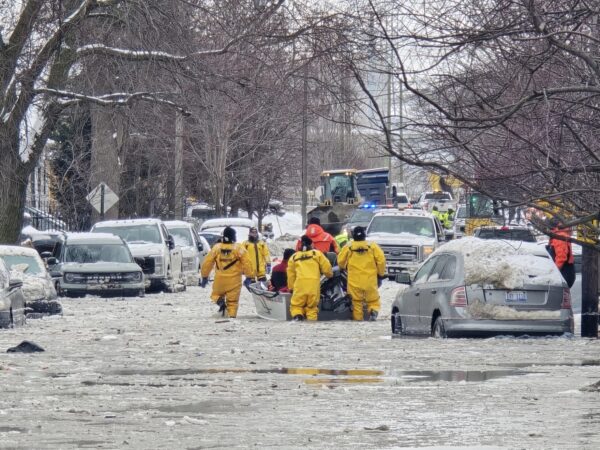
By Sarah Cwiek and Eli Newman, Michigan Radio
The Great Lakes News Collaborative includes Bridge Michigan; Circle of Blue; Great Lakes Now at Detroit Public Television; and Michigan Radio, Michigan’s NPR News Leader; who work together to bring audiences news and information about the impact of climate change, pollution, and aging infrastructure on the Great Lakes and drinking water. This independent journalism is supported by the Charles Stewart Mott Foundation. Find all the work HERE.
The Michigan Department of Environment, Great Lakes, and Energy is providing $800,000 to expand an ongoing COVID-19 detection program in wastewater.
The expanded program, which has been running as a pilot since spring, will test untreated sewage in some Detroit zip codes, as well as certain targeted zip codes in suburban communities like Sterling Heights, Oak Park, and West Bloomfield.
The program is headed up by a Michigan State University research team, led by engineering professor Irene Xagoraraki. It’s a collaboration with the Great Lakes Water Authority, and the Detroit Water and Sewerage Department.
Xagoraraki said her team’s models have been able to predict COVID-19 and other viral outbreaks such as Hepatitis A about two weeks before they show up in the clinical data.
“This is much bigger than COVID-19 because we can continue doing this, [and] we can screen for upcoming diseases and screen for the general health and also for immunity,” Xagoraraki said.
Public health officials say the data will help inform their strategy to combat emerging diseases, including COVID-19. They say the advance notice can help with proactive testing, contract tracing, and quarantine protocols.
Detroit public health director Denise Fair said testing wastewater will allow her office to target its public health responses. “As soon as they detect a possible outbreak, we’re going to be notified and then we can get on the ground and we can start messaging to our residents that may be affected,” Fair said.
John Norton, research director at the Great Lakes Water Authority, said what you flush down the toilet can provide all sorts of useful public health information.
“Everybody poops, everybody pees,” Norton said. “And when you do those actions, you are shedding the viruses, or whatever is in you, out into the wastewater system.”
Catch up on more COVID-19 wastewater testing news:
Sewage Check: Great Lakes researchers look to wastewater for data on COVID-19
Campus Clues to COVID-19: Sewage testing key to detecting early infections
API key not valid. Please pass a valid API key.Featured image: (Photo Credit: Michigan State University)




